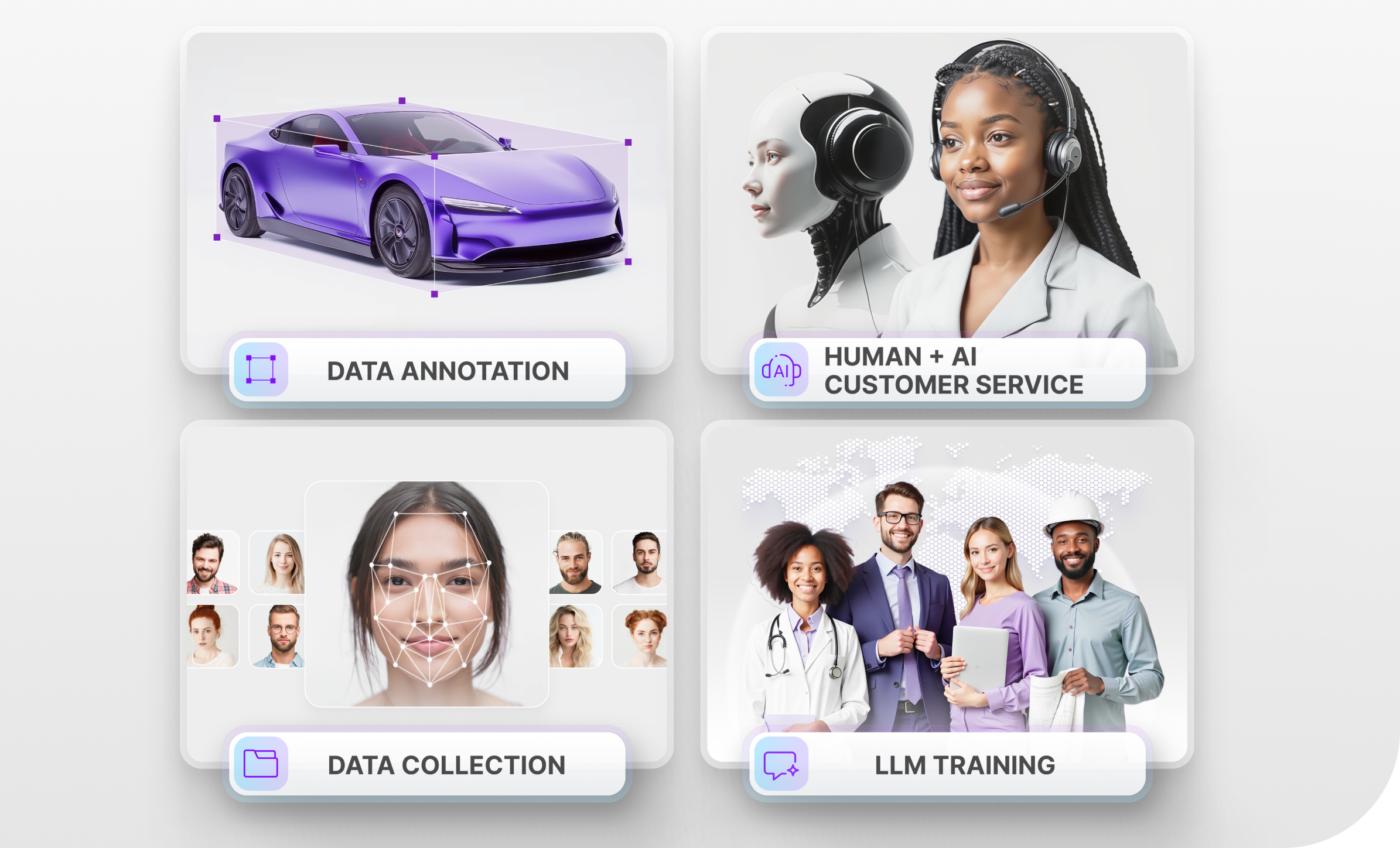A Real Estate Agent’s AI Assistant
AI chatbots are becoming an important tool for companies across industries to automate certain tasks in customer support, sales, and marketing. While today’s chatbots cannot fully replace human workers, in many situations, customers who interact with a corporate chatbot can easily mistake it for a human. In this article, we will take a look at how real estate companies can use chatbots to interact with clients, the potential room for improvement, and the data annotation necessary to create chatbots that can converse with humans.
How Can Companies in the Real Estate Industry Use Chatbots?
A real estate chatbot lets potential clients browse through the list of properties and answer questions depending on preferences for relevant references on properties. Most often, chatbots are used by real estate companies as one of the first touchpoints with clients to understand their needs and gauge their interests. Basically, the process looks like the following. When a user opens a real estate website, a chatbot opens up. The Real estate chatbots start communication with the prospective online buyer and ask them whether they are looking to buy, sell, or have any other related information. In addition, Chatbots can reach out to customers via email or text about their promotions on properties and campaigns on rental homes.
One interesting use case is a real estate company using a chatbot called Brenda. When a customer calls the phone number listed on the website, the phone would ring for a while, and then a human-sounding yet automated voice says, “Sorry I missed your call! I can chat over text.” Then the chatbot hangs up the phone. A few minutes later the prospect would receive a text. If the prospect texted Brenda back, she would reply. You could ask her questions about any aspect of the property such as rent, utilities, the size of the home and almost anything else.

What Types of Speech are Difficult for Chatbots to Understand?
The way chatbots usually work is that they scan each message for specific keywords and assign the message a classification tag, which in turn determines the response. For example, if somebody types “I have a dog,” this would compel the chatbot to tag a message PET_POLICY, which would conjure some generic message about pet deposits from the property’s database.
However, imagine if a customer types something like, “A pipe broke in my basement and flooded my home. I am looking for a short-term rental”. If all of the elements of the conversation are not tagged, the chatbot will only understand the part about the short-term rental and will respond with something like, “We have a 1BR starting at $1500. Do you want to come in for an appointment at 1 PM tomorrow?” Of course, this would be very insensitive to the situation the client finds themselves in, and it would be apparent that the company is using a chatbot. This is why some companies still use human workers to check the responses produced by the chatbot.
What Types of Data Annotation are Necessary to Create AI Chatbots?
As we mentioned in the previous section, chatbots assign tags to specific keywords to determine the appropriate response. The reason chatbots can understand these keywords in the first place is that human data annotators tagged various parts of speech in the training data. In addition to this, entity recognition would be necessary to identify parts of speech, named entities, and keyphrases within a text. All of the entities would then need to be linked together into larger repositories of data about them. Sentiment annotation may also be necessary to determine the customer’s emotions. This can help the AI system better understand the context of the conversation.
Trust Mindy Support With All of Your Data Annotation Needs
Mindy Support is a global company for data annotation and business process outsourcing, trusted by Fortune 500 and GAFAM companies, as well as innovative startups. With nine years of experience under our belt and offices and representatives in Cyprus, Poland, Romania, The Netherlands, India, UAE and Ukraine, Mindy Support’s team now stands strong with 2000+ professionals helping companies with their most advanced data annotation challenges.





